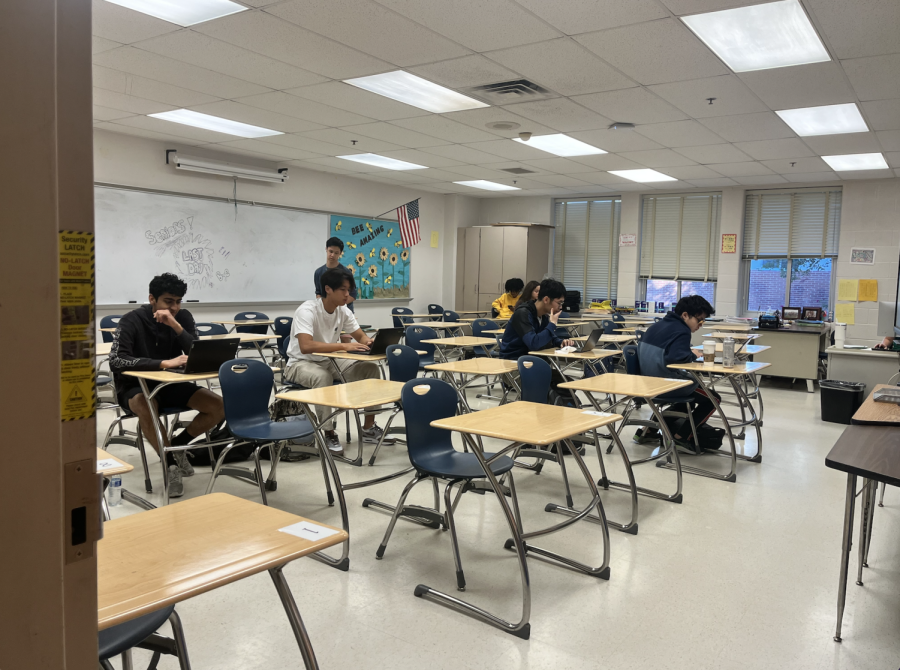How well does MCPS actually prepare their high schoolers for college?
WCHS students diligently work during their classes. Although time consuming, this work does not benefit them the way it should as MCPS’ rules and standards do not truly prepare students for college.
May 30, 2023
Over the course of 12 years, students are consistently being molded into preparation for their next level of education. Expectations become higher over time in order for students to understand what will be expected of them when they reach their final level of education: college. Unfortunately, in MCPS, multiple procedures are being softened and not accurately carried out. Therefore, students are unprepared for the level of rigor that college will expect of them.
MCPS students are cushioned from the multitudinous expectations that colleges set in place. They are sheltered from the sources of stress that regular university students face everyday and are therefore not being prepared for the standards that college life will impose. Students are at a particular disadvantage due to MCPS’ lack of exams, grade inflation and late work policy.
In 2016, finals exams were abolished by MCPS. They wanted to lessen the anxiety imposed on students and put an end to the test scores that were reflecting negatively on the county. Schools would instead administer smaller tests throughout the school year and would be able to have more instructional time.
Unfortunately, this seemingly great idea was not beneficial for students. An ordinary university final is usually worth about 20 percent of a student’s grade, according to the GPA Calculator. However, in some cases they can reach up to 40 percent of a student’s grade. Without finals, MCPS students are not well prepared for the heavily weighted exams that are waiting for them once they graduate. Furthermore, without exams AP and IB students are not truly put into a simulated college classroom. According to Research.com, exams and midterms were the top stressors for 31 percent of US students. The push to eliminate this stress would cause more stress in the future for MCPS students as they will be vulnerable to the high expectations that universities hold for them.
Furthermore, MCPS students are not penalized for their late assignments. In a normal high school or university, after the due date assignment grades drop 10 percent each date they are late. This practice teaches students to stay on top of their work and better organize themselves. During the online school year, caused by the COVID-19 pandemic, MCPS stopped penalizing late assignments. Students were allowed to submit their work up to the deadline with no penalty. This teaches students bad habits that they will carry into their college lives where educators will not be as lenient.
Moreover, MCPS has upheld policies that result in extreme grade inflation. Starting with the 50 percent rule, MCPS gave students a safety net to rely on for when they fail a test. Although this rule is helpful, it is not realistic. MCPS has also taken away pluses and minuses from grades. A student who earns a 98 percent in a class will have their grade weighted the same as one who has a 90. When the quarter grades add up at the end of the semester, rather than grades being weighted equally and giving students a middle ground grade, students receive the higher grade they earned. For example, if a student gets a B and a C their grade would round up to a B and weigh the same as a student whose grades were Bs both quarters. This policy inflates the GPAs of MCPS students and does not prepare them for the grading system that colleges will have.
Overall, MCPS needs to recognize the importance that high school has to prepare its students for college expectations. The policies that are supporting our mental health now will truly just increase student anxiety in the future. Unprepared students will fall prey to rigorous expectations.



